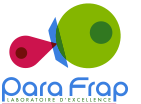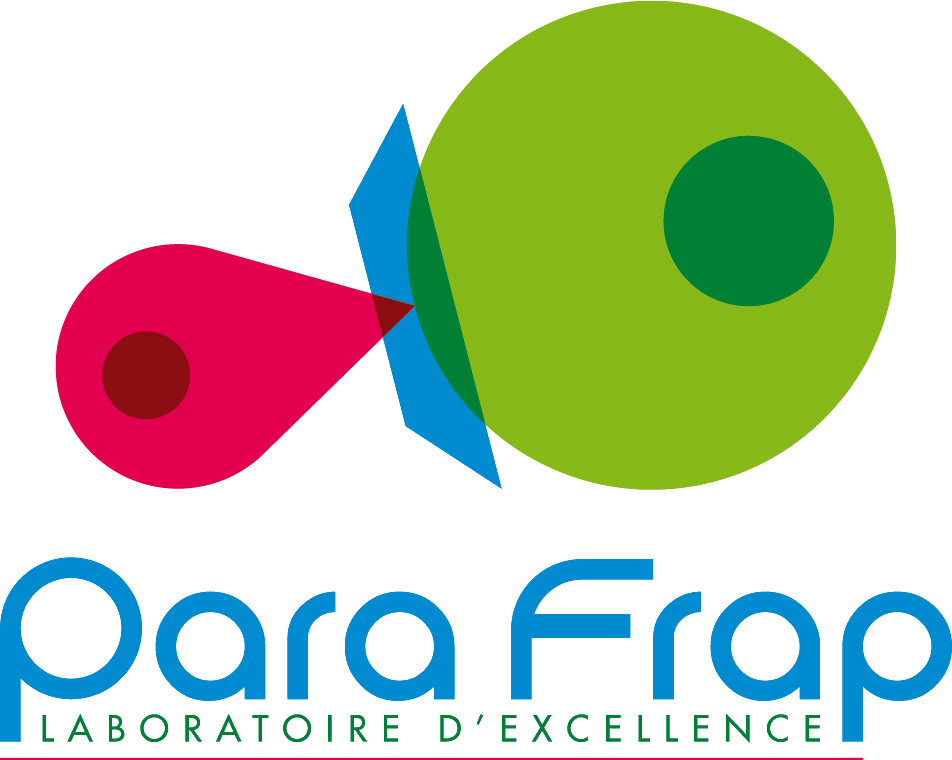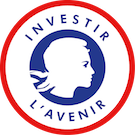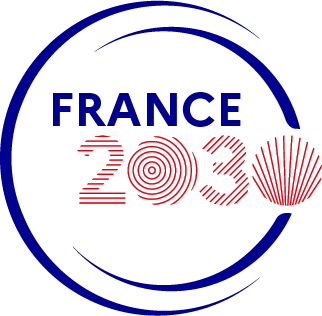

Parasitic infections remain a major cause of morbidity and mortality worldwide; they plague billions of people and kill millions annually, and inflict debilitating injuries such as disfiguration on additional millions. Malaria alone is estimated to cause up to 500 million clinical cases and over one million deaths each year. The vast majority of infections in humans and domestic animals can be attributed to protozoan pathogens responsible for malaria, African sleeping sickness, leishmaniasis, toxoplasmosis, bovine tropical theileriosis and amoebiasis. France has a longstanding tradition in academic parasitology research with several outstanding discoveries in the past. Although today, many groups have a very strong international visibility (2 ERC awards, 2 CNRS silver medals, organizers of prestigious international parasitology conferences) a number of weak points are apparent. Many laboratories work isolated (students and post docs do not know the community) and no common policy exists between laboratories dispersed over many sites in France. This causes an insufficient national/international visibility and low attractiveness for excellent students/researchers. In addition, sharing of competence and technical platforms is mostly lacking leading to a fragmented national parasitology community and duplication of efforts.
 Leading groups of the French parasitology community have decided to integrate their scientific expertise and activities to combat major protozoan parasites as a consortium named ‘French Parasitology Alliance for Health Care’. This is the first time in France that a comprehensive alliance is proposed. The objectives of the French Alliance for Parasitology and Health Care (acronym ParaFrap) will address precisely the actual weakness to initiate a profound restructuration of the French parasitology community to build on their potential strength.
Leading groups of the French parasitology community have decided to integrate their scientific expertise and activities to combat major protozoan parasites as a consortium named ‘French Parasitology Alliance for Health Care’. This is the first time in France that a comprehensive alliance is proposed. The objectives of the French Alliance for Parasitology and Health Care (acronym ParaFrap) will address precisely the actual weakness to initiate a profound restructuration of the French parasitology community to build on their potential strength.
Why a national LabEx of parasitology?

France has a long tradition in parasitology research with outstanding discoveries. Laveran received in 1907 the Nobel Prize for his discovery of the protozoan parasite that causes malaria and Charles Nicolle first described Toxoplasma in 1908. Today, the French parasitology community is also pleased that two ParaFrap participants, Stéphanie Blandin (Young European Research Council program) and Elena Levashina are close collaborators of the 2011 Nobel Prize Jules Hoffmann (CNRS-University of Strasbourg, France), who has initiated the work on innate immunity on the malaria mosquito in 2001 in his unit. In addition, a large number of French research institutions host internationally recognized parasitology teams. At the same time, a number of innovative ‘small industry’ (SME) and ‘big pharma’ have demonstrated their interest and implication in combating major human and veterinary parasitic pathogens. However, traditionally, a large gap exists between academic research and industry that need to be overcome to foster national synergies in combating major disease caused by a variety of protozoan parasites. On the other hand, the absence of coordinated parasitology research between institutions leads to duplication of efforts and resources and not adequately national and international visibility of the parasitology community.
In February 2019, following an evaluation process conducted by an international jury, Frédérique VIDAL, Minister of Higher Education, Research and Innovation, and the General Secretariat for Investment (SGPI) revealed the list of the 103 LabEx renewed. The LabEx ParaFrap was thus extended for 5 years (2020-2024). The international panel recognized the excellence of research and training within the LabEx, the strength and dynamics of the established network, the international reference which now is the biennial conference of ParaFrap, and the impact of the LabEx upon the visibility of French Parasitology.
ParaFrap will build on the strengths of the last 8 years to develop a new, ambitious and innovative joint research program. Our network was enriched with new partners selected by our international external scientific advisory board (eSAB) following a call for applications launched at the end of 2018. A new PhD programme will be launched in 2021.
The INSERM workshop “Modern methods in molecular parasitology” will take place in Montpellier, France, from 4–6 November 2026. This event will bring together leading experts in...
The 15th CAPF (French Anti-Parasitic and Anti-Fungal Consortium) workshop will take place on 16–17 March 2026 in Strasbourg (France). This event is an excellent opportunity for students and postdoctoral researchers to participate and contribute...
Call for Applications: New Junior Research Groups at Institut Pasteur The Institut Pasteur has launched an international call to recruit new junior group leaders.This is a unique opportunity for high-potential scientists to...
JOB : Ingénieur·e d’étude / Research Engineer – Mosquito Immunity (IBMC, Strasbourg) 🇫🇷 Le laboratoire Mosquito Immune Responses recrute un·e ingénieur·e d’étude à l’IBMC (Strasbourg). La personne recrutée sera en...
Applications are now open for the 2026 Biology of Parasitism (BoP) course, taking place June 12–July 23, 2026 at the Marine Biological Laboratory in Woods Hole, MA.This intensive 6-week program offers PhD students and postdocs advanced training in...
Newcastle University offers a full-time, fixed-term position (3 years) for a Research Assistant or Research Associate in Molecular Parasitology — funded by the Medical Research Council (MRC). About the Opportunity Location:...
Multidisciplinary PhD opportunity in the fields of infectious diseases, gene regulations and molecular signalisation. Fully Funded 4-Year PhD at the University of York A fully funded PhD opportunity is available at the...
The EMBO Workshop 2025 “Host–Parasite Relationship: From Mechanisms to Control Strategies”, took place from October 5–8, 2025, on the beautiful Île des Embiez (France). Organized within the framework of the LabEx ParaFrap and...
Postdoc (M/F) in molecular and biochemical parasitology (Toxoplasma gondii) A 24-month post-doctoral position starting on January 2026 and funded by the French National Research Agency (ANR) is available in the in the...
Postdoc (M/F) Molecular and cell biology in Trypanosoma brucei A 24-month post-doctoral position starting on November 1st 2025 (or before) and funded by the French National Research Agency (ANR) is available in the...

© 2023. All rights reserved MLCOM
Notre site LabEx ParaFrap utilise des cookies pour réaliser des statistiques de visites, partager des contenus sur les réseaux sociaux et améliorer votre expérience. En refusant les cookies, certains services seront amenés à ne pas fonctionner correctement. Nous conservons votre choix pendant 30 jours. Vous pouvez changer d'avis en cliquant sur le bouton 'Cookies' en bas à gauche de chaque page de notre site. En savoir plus
Ce site utilise des cookies pour assurer son bon fonctionnement et ne peuvent pas être désactivés de nos systèmes. Nous ne les utilisons pas à des fins publicitaires. Si ces cookies sont bloqués, certaines parties du site ne pourront pas fonctionner.
Ce site utilise des cookies de mesure et d’analyse d’audience, tels que Google Analytics et Google Ads, afin d’évaluer et d’améliorer notre site internet.
Ce site utilise des composants tiers, tels que NotAllowedScript69929b019fb4fReCAPTCHA, Google NotAllowedScript69929b019f82cMaps, MailChimp ou Calameo, qui peuvent déposer des cookies sur votre machine. Si vous décider de bloquer un composant, le contenu ne s’affichera pas
Des plug-ins de réseaux sociaux et de vidéos, qui exploitent des cookies, sont présents sur ce site web. Ils permettent d’améliorer la convivialité et la promotion du site grâce à différentes interactions sociales.
Ce site web utilise un certain nombre de cookies pour gérer, par exemple, les sessions utilisateurs.

